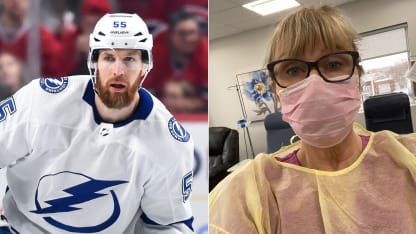"I'm 55 years old and I come home to a house that's just me and my two little dogs, so I don't have anybody that I'm going to expose it to in my house. And my kids are all grown up, all independent," Gwen said. "But I do get scared that I might be asymptomatic in that I'm not showing signs of it and that I would pass it on to my patients. That's my biggest fear. I wish that we had the capability to test everybody, particularly test all health care workers, but there is such a limited amount that they can only test the people who are actually showing signs. I don't have any signs, so I don't get tested, but anybody could be a carrier."

